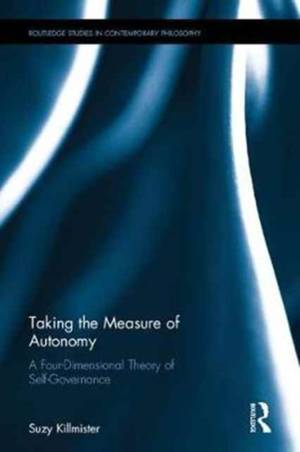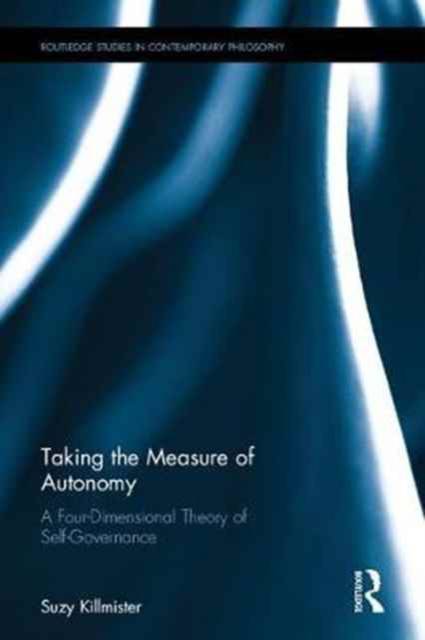
- Afhalen na 1 uur in een winkel met voorraad
- Gratis thuislevering in België vanaf € 30
- Ruim aanbod met 7 miljoen producten
- Afhalen na 1 uur in een winkel met voorraad
- Gratis thuislevering in België vanaf € 30
- Ruim aanbod met 7 miljoen producten
Omschrijving
This book takes a radically different approach to the concept of autonomy. Killmister defends a theory of autonomy that is four-dimensional and constituted by what she calls 'self-definition, ' 'self-realisation, ' 'self-unification, ' and 'self-constitution.' While sufficiently complex to inform a full range of social applications, this four-dimensional theory is nonetheless unified through the simple idea that autonomy can be understood in terms of self-governance. The 'self' of self-governance occupies two distinct roles: the role of 'personal identity' and the role of 'practical agency.' In each of these roles, the self is responsible for both taking on, and then honouring, a wide range of commitments. One of the key benefits of this theory is that it provides a much richer measure not just of how autonomous an agent is, but also the shape--or degree--of her autonomy. Taking the Measure of Autonomy will be of keen interest to professional philosophers and students across social philosophy, political philosophy, ethics, and action theory who are working on autonomy.
Specificaties
Betrokkenen
- Auteur(s):
- Uitgeverij:
Inhoud
- Aantal bladzijden:
- 200
- Taal:
- Engels
- Reeks:
Eigenschappen
- Productcode (EAN):
- 9781138700123
- Verschijningsdatum:
- 1/11/2017
- Uitvoering:
- Hardcover
- Formaat:
- Genaaid
- Afmetingen:
- 155 mm x 231 mm
- Gewicht:
- 340 g

Alleen bij Standaard Boekhandel
Beoordelingen
We publiceren alleen reviews die voldoen aan de voorwaarden voor reviews. Bekijk onze voorwaarden voor reviews.











